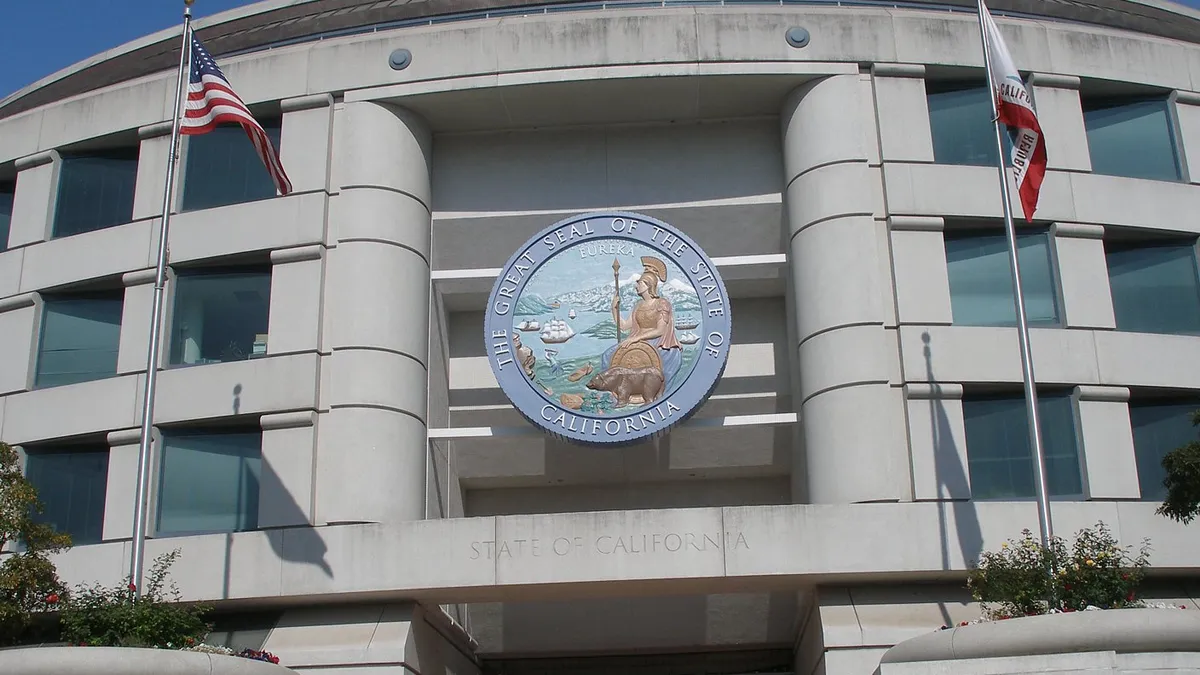Dive Brief:
-
Regulators at the California Public Utilities Commission (CPUC) voted unanimously on Monday to dismiss the agency's executive director, Alice Stebbins, who says she is being removed from her job because she "blew the whistle" on roughly $200 million in unpaid fees owed to the agency.
-
CPUC President Marybel Batjer linked Stebbins' dismissal to a state report that she said raised concerns about five hires that Stebbins was involved with — including a case where Stebbins allegedly "pre-selected" a candidate for a job.
-
"On behalf of now former Executive Director Stebbins, we are disappointed but not surprised by this action," Therese Cannata, an attorney for Stebbins, said in an email. Stebbins' lawyers intend to file a claim this week as a first step to litigation against the CPUC for whistleblower retaliation and violating the Bagley-Keene Act, Cannata added.
Dive Insight:
The CPUC held a meeting on Monday to consider the issue, which included a public comment period — during which many callers voiced support for Stebbins — followed by a closed session in which commissioners voted to dismiss Stebbins effective Sept. 4.
Stebbins has been serving as the CPUC's executive director since early 2018 and according to a letter from her attorney, Karl Olson, had been trying to address uncollected fees of roughly $200 million that were owed to the agency. The CPUC's Executive Office, which Stebbins led, focuses on implementing the agency's decisions, along with administration and planning.
Olson has accused the CPUC's commissioners of trying to dismiss Stebbins because she reported on these and other "illegal practices" at the agency, and said the regulators had been involved in "illegal closed meetings" to orchestrate her removal. In addition, Olson said that companies like Pacific Gas & Electric (PG&E) and AT&T had lobbied for Stebbins' removal — an allegation that PG&E has said is false.
At the meeting, Olson said firing Stebbins would send "a chilling message to whistleblowers in state service" — that people who report illegal and improper activity will be fired.
Stebbins also addressed the meeting directly, saying that Batjer and the other commissioners were trying to cover up the $200 million in uncollected fines.
"I know without a doubt that they had to get rid of me because I blew the whistle on the $200 million," Stebbins said.
But Batjer said that the regulators considered dismissing Stebbins because of a report from California's State Personnel Board (SPB), which, she said, found that Stebbins allegedly pre-selected an employee for a role and then misrepresented the associated duties in order to increase the candidate's salary.
"It is appalling and disgraceful to engineer the hiring of a marginally qualified former colleague over more qualified candidates, spike the person's pay and then make false statements attempting to justify the compensation," Batjer said.
Batjer also criticized Stebbins' actions following the report's release, including approving pending hiring-related decisions even though Batjer had asked that the commission's human resources department temporarily report to her instead, and asking commissioners to "make the SPB report go away." Batjer also pushed back against the allegations that utilities had asked the regulators to end Stebbins' employment, saying that none of the commissioners had communicated with any utility employees about the issue.
But Stebbins said the SPB investigation was "seriously flawed," and that when she tried to explain why the report was inaccurate, she was accused of being defensive.
"I knew that President Batjer had close connections to the SPB — she had oversight of that agency in her prior job. I had not realized until this moment that she would actually exercise improper influence over a state audit," Stebbins said.














